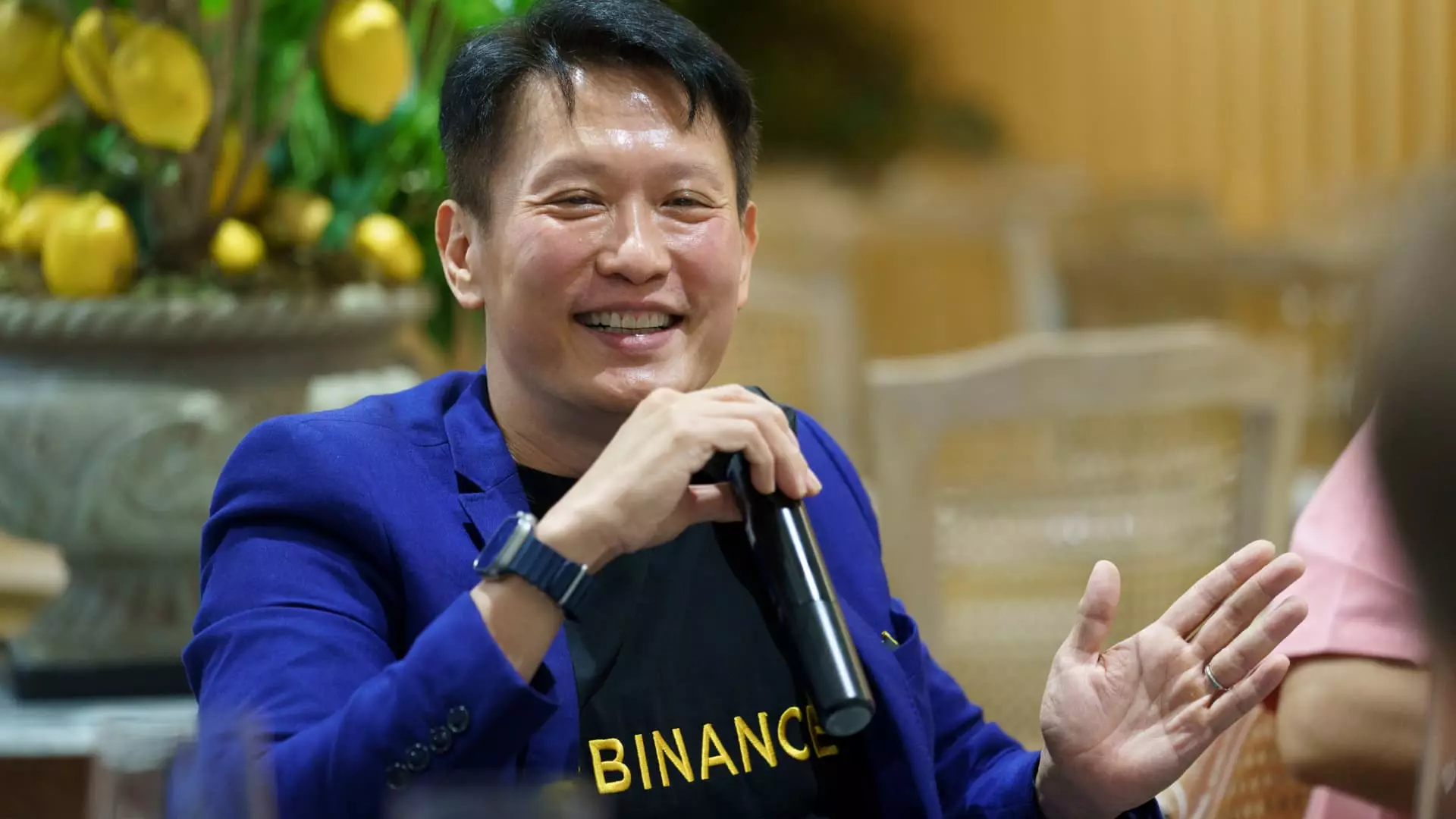The recent transformation of Binance under its CEO, Richard Teng, marks a fascinating era for the cryptocurrency giant. Once synonymous with regulatory disregard, Binance has navigated a remarkable course that has shifted perceptions from pariah to potential powerhouse in Washington D.C. Teng’s statement about the Trump administration acting as a “fantastic reset” for the crypto industry is not just hyperbole; it reflects a significant pivot in global attitudes toward digital currencies. Under Teng’s leadership, Binance has embraced a politically advantageous landscape, effectively rebranding itself amid a backdrop of turbulent regulatory relationships.
This shift is noteworthy in the context of the exchanges’ tumultuous past, highlighted by a $4.3 billion settlement with regulators. Changpeng “CZ” Zhao, the billionaire founder of Binance, was ousted following allegations and charges that rocked the organization to its core. Teng’s ascension to the role of CEO in late 2023 came with the daunting task of reinventing the entity into one that not only survives but thrives in the evolving regulatory ecosystem. The thawing of hostilities between crypto entities and the government under Trump’s administration is no small feat, setting the stage for Binance’s burgeoning influence within political circles.
Forging New Alliances
Recent developments have indicated that Binance is exploring potential partnerships that could further solidify its place in the upper echelons of Washington D.C.’s political framework. Reports suggest that the Trump family might take a financial stake in Binance, a move that would radically alter the landscape of crypto governance. The exchange is also in discussions with World Liberty Financial, a crypto bank linked to Trump, about launching a dollar-pegged stablecoin. Such initiatives signal a drastic turnaround for Binance—a firm that was once seen as operating outside the bounds of governmental approval to one that is courting significant political actors.
Teng’s strategic caution when discussing these potential collaborations highlights the complexities navigating such high-stakes environments. He has made distinctions between Binance and Binance.US, emphasizing their operational independence in light of regulatory scrutiny. This strategic method to compartmentalize operations serves a dual purpose: it mitigates risk while allowing for broader freedoms in foreign markets. Under Teng’s leadership, Binance isn’t merely riding the wave of political changes; it is actively crafting new pathways to collaboration and influence.
An Expanding Global Influence
Teng’s comments about the rapid growth in Binance’s user base—from 170 million to 265 million in a year—underscore the platform’s expansion beyond American borders. He highlights that interest in crypto is growing globally, with countries like Japan, Australia, and various nations across the Middle East and Latin America showing more openness towards digital assets. As Binance now holds licenses in 21 jurisdictions, it is clear that Teng is keen on establishing a comprehensive global network that capitalizes on both regulatory compliance and user growth potential.
However, skepticism lingers, particularly regarding the histories of compliance and governance that Binance is now striving to overcome. The firm recently ramped up its compliance workforce significantly, culminating in seven members on its board, including independent directors. This structural overhaul demonstrates an understanding that reputational rehabilitation requires not just policy tweaking but an honest appraisal of past failings.
Challenges on the Horizon
Despite its newfound political clout, Binance faces undeniable threats. The ongoing legal struggles with the Securities and Exchange Commission (SEC) indicate that the legacy of its previous actions will not dissipate overnight. The settlement with regulators has provided some respite, but the civil case linger—reminding the company and its stakeholders that the past doesn’t easily fade. These regulatory hurdles could complicate the expansion strategies that Teng ardently advocates for, emphasizing the importance of vigilance within compliance.
Moreover, the implications of the imprisonment of top compliance officer Tigran Gambaryan in Nigeria further serve as a stark reminder of the precarious nature of operating in varied jurisdictions. It highlights that the journey toward a compliant and respected platform is fraught with geopolitical risk, an aspect that requires careful navigation as Binance forges its path forward.
A Technological Future Rich with Potential
With the endorsement of technological innovation and an eye toward Artificial Intelligence (AI), Binance is positioning itself not just as a trading platform but as a comprehensive tech-forward financial institution. Teng’s integration of AI into customer service, security, and compliance monitoring showcases the critical role that technology will play in enhancing user experience and maintaining adherence to regulations.
As Teng noted, ensuring operational robustness in an evolving landscape is a priority. His proactive approach to security, product innovation, and acquisition opportunities speaks to a vision that’s more than just survival; it’s a blueprint for leadership in the crypto economy. With partnerships like the recent investment from Emirati state-owned investment firm MGX, the marriage of crypto and advanced technologies is no longer a mere concept but a tangible reality—one that aims to drive both sectors into unprecedented growth trajectories.
In essence, Binance stands at a nexus of opportunity and challenges, navigating complex interactions between politics, compliance, and innovation, with the intentions of establishing itself as a dominant player in the global crypto landscape.


Leave a Reply